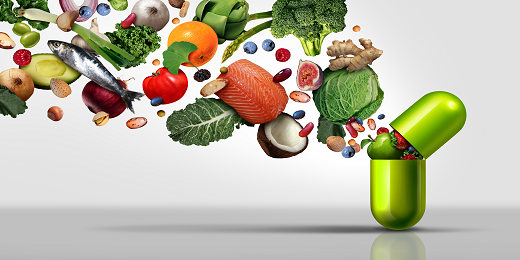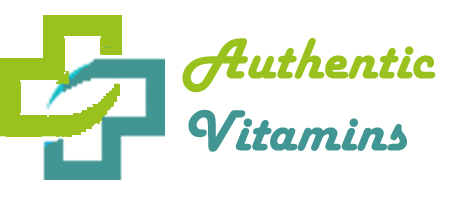
13 Essential Vitamins To Support A Healthy Lifestyle
Vitamin A
Chemical names: retinol, retinal, and “the four carotenoids,” including beta carotene.
- It is fat-soluble.
- Function: It is essential for eye health.
- Deficiency: This may cause night blindness and keratomalacia, which causes the clear front layer of the eye to grow dry and cloudy.
- Good sources: These include liver, cod liver oil, carrots, broccoli, sweet potatoes, butter, kale, spinach, pumpkins, collard greens, some cheeses, eggs, apricots, cantaloupe melon, and milk.
Vitamin B1
Chemical name: thiamine.
- It is water-soluble.
- Function: It is essential for producing various enzymes that help break down blood sugar.
- Deficiency: This may cause beriberi and Wernicke-Korsakoff syndrome.
- Good sources: These include yeast, pork, cereal grains, sunflower seeds, brown rice, whole grain rye, asparagus, kale, cauliflower, potatoes, oranges, liver, and eggs.
Vitamin B2
Chemical name: riboflavin.
- It is water-soluble.
- Function: It is essential for the growth and development of body cells and helps metabolize food.
- Deficiency: Symptoms include inflammation of the lips and fissures in the mouth.
- Good sources: These include asparagus, bananas, persimmons, okra, chard, cottage cheese, milk, yogurt, meat, eggs, fish, and green beans.
Vitamin B3
Chemical names: niacin, niacinamide.
- It is water-soluble.
- Function: The body needs niacin for the cells to grow and work correctly.
- Deficiency: Low levels result in a health issue called pellagra, which causes diarrhoea, skin changes, and intestinal upset.
- Good sources: Examples include chicken, beef, tuna, salmon, milk, eggs, tomatoes, leafy vegetables, broccoli, carrots, nuts and seeds, tofu, and lentils.
Vitamin B5
Chemical name: pantothenic acid.
- It is water-soluble.
- Function: It is necessary for producing energy and hormones.
- Deficiency: Symptoms include paraesthesia, or “pins and needles.”
- Good sources: These include meats, whole grains, broccoli, avocados, and yogurt.
Vitamin B6
Chemical names: pyridoxine, pyridoxamine, pyridoxal.
- It is water-soluble.
- Function: It is vital for the formation of red blood cells.
- Deficiency: Low levels may lead to anemia and peripheral neuropathy.
- Good sources: These include chickpeas, beef liver, bananas, squash, and nuts.
Vitamin B7
Chemical name: biotin.
- It is water-soluble.
- Function: It enables the body to metabolize proteins, fats, and carbohydrates. It also contributes to keratin, a structural protein in the skin, hair, and nails.
- Deficiency: Low levels may cause dermatitis or inflammation of the intestines.
- Good sources: These include egg yolk, liver, broccoli, spinach, and cheese.
Vitamin B9
Chemical names: folic acid, folinic acid.
- It is water-soluble.
- Functions: It is essential for making DNA and RNA.
- Deficiency: During pregnancy, this can affect the foetus’s nervous system. Doctors recommend folic acid supplements before and during pregnancy.
- Good sources: These include leafy vegetables, peas, legumes, liver, some fortified grain products, and sunflower seeds. Also, several fruits have moderate amounts.
Vitamin B12
Chemical names: cyanocobalamin, hydroxocobalamin, methyl cobalamin.
- It is water-soluble.
- Function: It is essential for a healthy nervous system.
- Deficiency: Low levels may lead to neurological problems and some types of anaemia.
- Good sources: Examples include fish, shellfish, meat, poultry, eggs, milk and other dairy products, fortified cereals, fortified soy products, and fortified nutritional yeast.
Doctors may recommend that people with vegan diets take B12 supplements.
Vitamin C
Chemical name: ascorbic acid.
- It is water-soluble.
- Function: It contributes to collagen production, wound healing, and bone formation. It also strengthens blood vessels, supports the immune system, helps the body absorb iron, and acts as an antioxidant.
- Deficiency: This may result in scurvy, which causes bleeding gums, a loss of teeth, and poor tissue growth and wound healing.
- Good sources: These include fruit and vegetables, but cooking destroys vitamin C.
Vitamin D
Chemical names: ergocalciferol, cholecalciferol.
- It is fat-soluble.
- Function: It is necessary for the healthy mineralization of bone.
- Deficiency: This may cause rickets and osteomalacia, or softening of the bones.
- Good sources: Exposure to UVB rays from the sun or other sources causes the body to produce vitamin D. Fatty fish, eggs, beef liver, and mushrooms also contain the vitamin.
Vitamin E
Chemical names: tocopherol, tocotrienol.
- It is fat-soluble.
- Function: Its antioxidant activity helps prevent oxidative stress, an issue that increases the risk of widespread inflammation and various diseases.
- Deficiency: This is rare, but it may cause hemolytic anemia in newborns. This condition destroys blood cells.
- Good sources: These include wheat germ, kiwis, almonds, eggs, nuts, leafy greens, and vegetable oils.
Vitamin K
Chemical names: phylloquinone, menaquinone.
- It is fat-soluble.
- Function: It is necessary for blood clotting.
- Deficiency: Low levels may cause an unusual susceptibility to bleeding, or bleeding diathesis.
- Good sources: These include natto, leafy greens, pumpkins, figs, and parsley.
To supplement your essential vitamins take a look in our Online Shop
